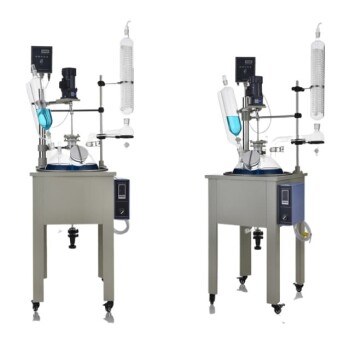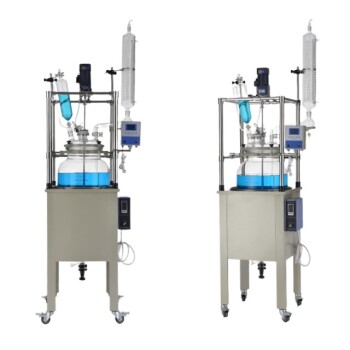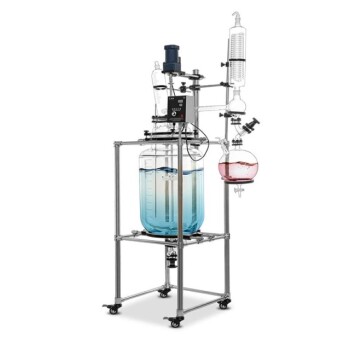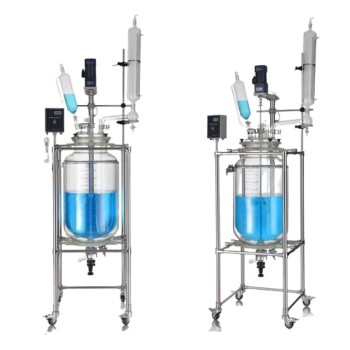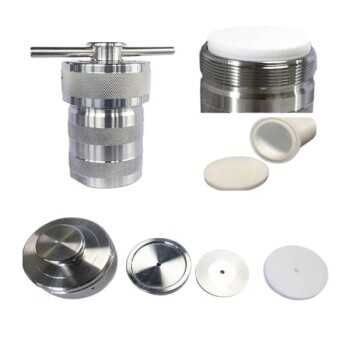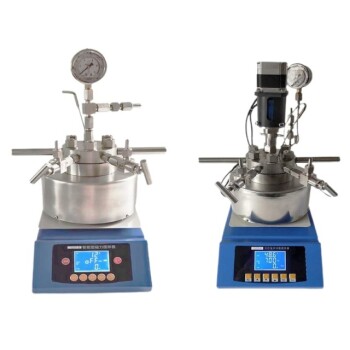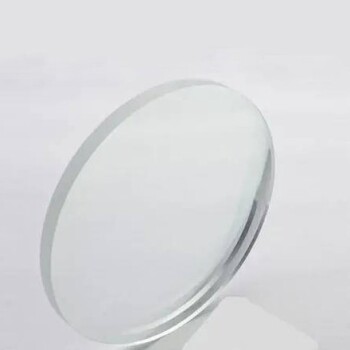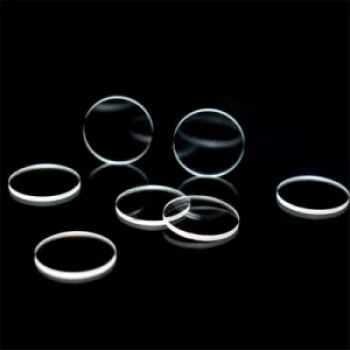Glass reactors are versatile tools used across a wide range of industries and applications due to their ability to handle high and low temperatures, vacuum conditions, and precise control over reaction parameters. They are essential in chemical synthesis, pharmaceutical development, biotechnology, and educational research. Their applications include high-temperature and low-temperature reactions, vacuum distillation, solvent synthesis, extraction, purification, and concentration processes. Glass reactors are particularly valued in industries like chemical manufacturing, pharmaceuticals, and biotechnology for tasks such as polymerization, crystallization, and the extraction of natural products. Their adaptability and transparency make them indispensable for optimizing reaction conditions and ensuring high-quality results.
Key Points Explained:
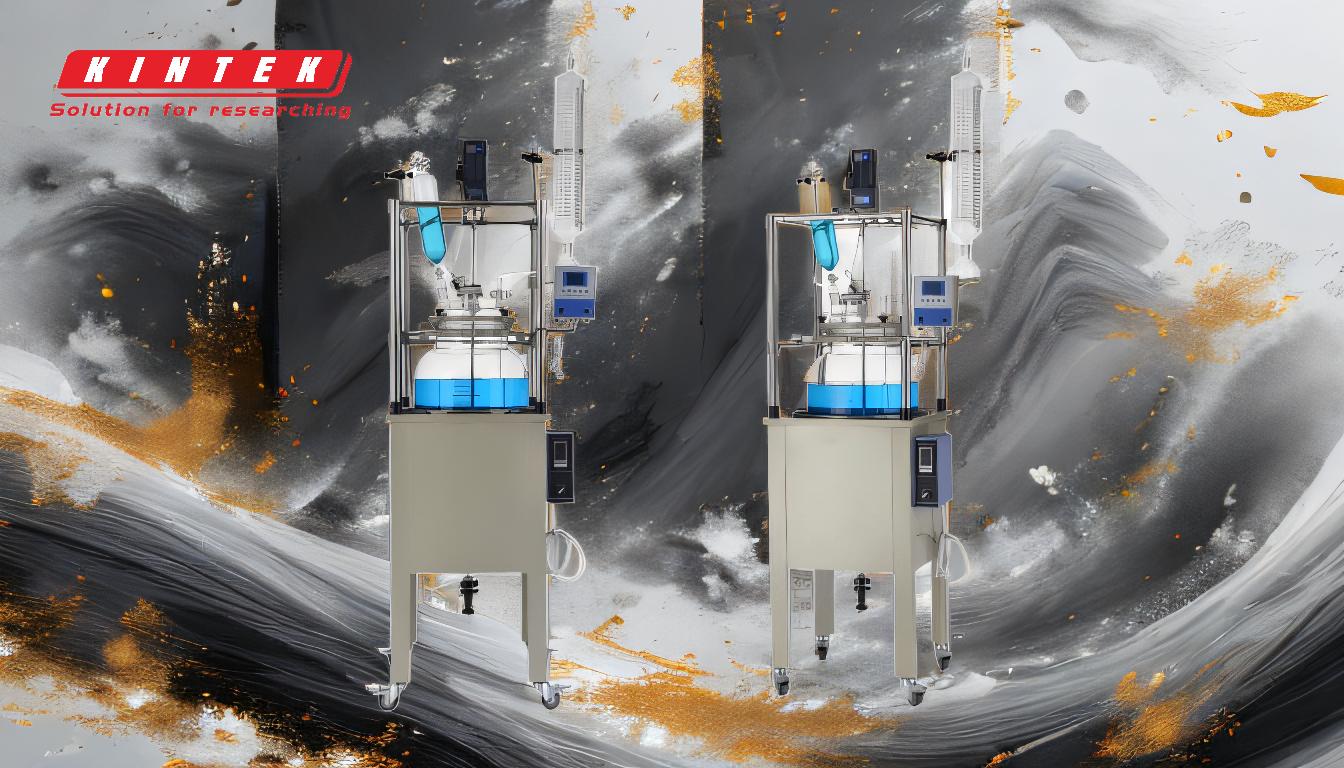
-
Chemical Industry Applications:
- Chemical Synthesis: Glass reactors are widely used for synthesizing chemicals, including temperature-sensitive reactions like hydrogenation and oxidation. They allow precise control over reaction parameters such as temperature, pressure, and stirring speed, which is crucial for optimizing yields and product quality.
- Polymerization: In the production of resins, plastics, and other polymers, glass reactors provide a controlled environment for polymerization reactions, ensuring consistent results.
- Distillation and Solvent Synthesis: Glass reactors are used for distilling solvents and synthesizing chemical compounds under constant temperature conditions, which is essential for producing high-purity materials.
-
Pharmaceutical Industry Applications:
- Drug Development: Glass reactors play a critical role in pharmaceutical research and production, particularly for processes like crystallization, which is used to purify active pharmaceutical ingredients (APIs).
- Extraction and Purification: They are used for extracting plant materials or natural products and purifying compounds, ensuring the safety and efficacy of pharmaceutical products.
-
Biotechnology Applications:
- Biochemical Reactions: Glass reactors are used in biochemistry for processes like enzyme reactions, fermentation, and other biological transformations that require precise temperature and pressure control.
- Photochemical Reactions: In biotechnology, glass reactors are used for photochemical reactions, where light is used to drive chemical processes, such as in the synthesis of certain biomolecules.
-
Laboratory and Educational Applications:
- Research and Development: Glass reactors are indispensable in laboratory settings for conducting experiments, screening reactions, and developing new chemical processes. Their transparency allows researchers to observe reactions in real-time.
- Educational Purposes: In academic settings, glass reactors are used to teach students about chemical reactions, distillation, and other fundamental processes in chemistry and engineering.
-
Metallurgical Industry Applications:
- Material Synthesis: Glass reactors are used in metallurgy for synthesizing and processing materials under controlled conditions, such as in the production of specialized alloys or coatings.
-
Versatility in Reaction Conditions:
- High-Temperature Reactions: Glass reactors can withstand temperatures up to 300℃, making them suitable for high-temperature chemical processes.
- Low-Temperature Reactions: They can also operate at temperatures as low as -80℃, enabling cryogenic reactions and processes.
- Vacuum Reactions: Glass reactors are used for vacuum distillation and other reactions that require negative pressure conditions.
-
Extraction and Separation Processes:
- Extraction Separation: Glass reactors are used for separating components from mixtures, such as extracting essential oils from plants or isolating specific chemical compounds.
- Concentration Reactions: They are also used for concentrating solutions by removing solvents, which is critical in producing high-purity products.
-
Stirring and Mixing:
- Stirring Reactions: Glass reactors often come equipped with stirring mechanisms, which are essential for ensuring uniform mixing and efficient heat transfer during reactions.
In summary, glass reactors are indispensable in industries and settings that require precise control over chemical processes. Their ability to handle a wide range of temperatures, pressures, and reaction types makes them a cornerstone of modern chemical, pharmaceutical, and biotechnological research and production.
Summary Table:
| Industry | Applications |
|---|---|
| Chemical | Chemical synthesis, polymerization, distillation, solvent synthesis |
| Pharmaceutical | Drug development, crystallization, extraction, purification |
| Biotechnology | Biochemical reactions, photochemical reactions, fermentation |
| Laboratory/Education | Research, development, teaching fundamental chemical processes |
| Metallurgical | Material synthesis, specialized alloy production |
| Versatility | High/low-temperature reactions, vacuum distillation, extraction, concentration |
Interested in optimizing your chemical processes with glass reactors? Contact our experts today to learn more!


